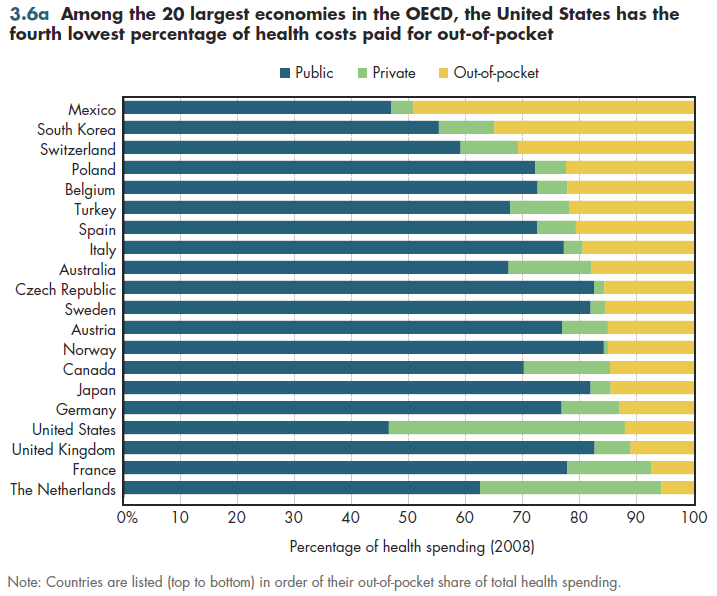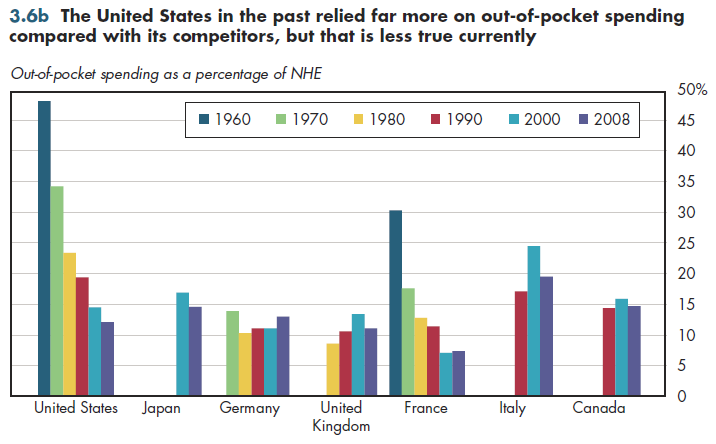Among the 20 largest countries in the OECD, the United States has the fourth lowest share of health spending paid through out-of-pocket payments (figure 3.6a). This might seem surprising because the tax-financed share of spending in the United States is the lowest among these countries. Private health insurance more than makes up for the fact that government is responsible for a smaller fraction of health spending. Compared with its largest OECD competitors, the United States by far relies much more heavily on private health insurance.

Even citizens of countries such as Canada — who pride themselves for having tax-financed universal coverage — pay a higher share of health spending out-of-pocket than do Americans. Switzerland, which relies on an individual mandate analogous to the one recently included in the U.S. health reform plan, has more than 30 percent of its health spending financed through out-of-pocket payments. To be fair, another country with an individual mandate, the Netherlands, is one of only three countries to have a lower out-of-pocket share than does the United States. Even in countries that have universal or near-universal coverage, there is quite a bit of diversity in terms of how much out-of-pocket burden citizens are left to experience.
The current U.S. rank is a sharp change from 1960, when almost half of American health spending was out-of-pocket (figure 3.6b). Unfortunately, there are gaps in the historical data on this measure for the other countries, but at that time, a 20-percentage-point difference existed between France and the United States in terms of the out-of-pocket share of health expenditures. Today that differential is less than five percentage points. Moreover, the U.S. out-of-pocket share now is much more comparable to the other members of the G7, with Japan, Germany, Italy, and Canada all having higher out-of-pocket shares than does the United States.

Download Excel tables used to create
Figures 3.6a/3.6b Tables.
Figures 3.6a and 3.6b were created from the following table (the workbook includes all supporting tables used to create this table):
- Fig. 3.6a: Table 3.6.1. Distribution of National Health Expenditures by Source of Revenue, OECD Countries, 2009
- Fig. 3.6b: Table 3.6.2. Out-of-Pocket Share of National Health Expenditures, G7 Countries, Selected Years 1960-2008
Download PowerPoint versions of both figures.
- Organisation for Economic Co-operation and Development.











